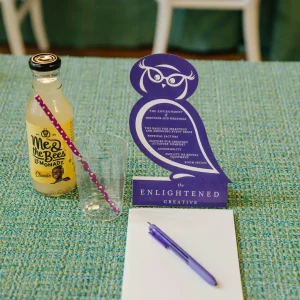In the world of wedding planning, where professionals have only one chance to make an event unforgettable, even a small misstep can feel catastrophic. It can be something as simple as a missed deadline or something big like poor client care — these moments can strain client relationships, disrupt timelines, and impact your business’ reputation. Here’s the deal — these challenges are undoubtedly stressful, they also present opportunities for growth and improvement. Here’s how to navigate these situations with grace, accountability, and strategies for future prevention.

1. Pause and Assess the Situation
When a mistake comes to light, it’s natural to feel a surge of stress or frustration — you may even want to fire your team member immediately. Before addressing the team member involved, take a moment to gather your thoughts and assess the severity of the situation. Was it an isolated oversight, or part of a larger pattern? Understanding the context will help you respond constructively.
2. Communicate Transparently
Effective communication is key. Speak with your team member one-on-one to understand what went wrong. Frame the conversation as an opportunity for insight rather than confrontation. Ask questions like:
- “What led to this oversight?”
- “Were there obstacles that negatively affected your workflow?”
- “How can I support you to ensure this doesn’t happen again?”
This approach fosters trust and encourages honesty, allowing you to uncover not just the mistake but the underlying cause.
3. Emphasize Accountability
A healthy team culture values accountability without focusing on blame. If a team member made an error, they should acknowledge it openly. This helps to reinforce a shared commitment to professionalism and quality care. Make sure that accountability is seen as a positive—a key part of personal and team growth.
4. Develop an Immediate Solution
Work with your team member to create an action plan to remedy the mistake. This might mean direct communication with the client to manage expectations or recalibrating the event schedule to accommodate the oversight. The goal is to demonstrate to clients that your team is adaptable and reliable, even when challenges arise.
5. Reflect and Learn
Once everything has cleared up, take some time for reflection. Organize a team meeting to discuss what occurred without making it solely about the team member. Focus on what the team as a whole can learn:
- Are there processes that can be improved?
- Do you need to implement better tracking tools?
- Would more training or support benefit the team?
This collective learning approach shifts the focus from fault to continuous improvement and collaboration.
6. Strengthen the Processes
A single oversight can be a signal that systems need reinforcement. Review your workflows and communication protocols to identify weaknesses. For example, if the issue stemmed from a missed deadline, implement a more robust task management system or set regular check-ins to ensure deadlines are on track.
7. Show Empathy and Foster Growth
Mistakes can shake the confidence of your team member. Support them by expressing empathy and highlighting their strengths. Remind them that mistakes are a part of growth and that, as a team, you’ll come out stronger. When your team learns to navigate errors gracefully, your clients will feel more secure in their professionalism and adaptability.
Remember — It’s not the mistake that defines you but the way you handle it.
Love and Soul Always,
Kawania Wooten, Your Wedding Industry Educator
Photo: Shutterstock








